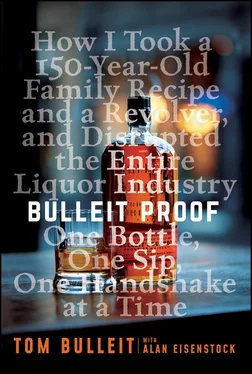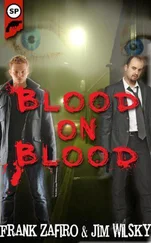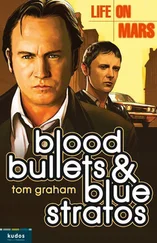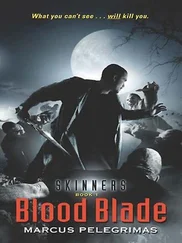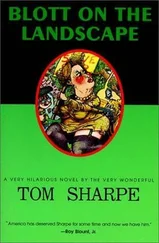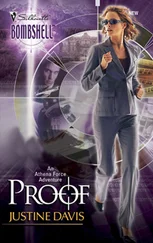Then things change.
* * *
Guided by moonlight, we move. I march, then crouch in our company of Marines, hugging both sides of the road, edging toward the Haiphong Pass. Our assignment: take back the bunker at the top of the pass previously held by us, recently overrun and seized by the Viet Cong. In a nighttime ambush, the Viet Cong slaughtered seven Marines.
As we approach the bunker, rocket fire explodes, blazing blue. The distant thunder of big guns blast, rocking the ground, then the clack, clack, clack, clack of AK47s screeches overhead, behind us, on both sides of us. Voices ring out in the dark. Cries. Grunts. Hollers. Four men in front of me, a soldier topples. I drop down next to him, identify a clean entry and exit wound in his forearm. I apply battle dressing, tag his hand, turn him around, send him back, alive, prayerful. He hasn’t dodged a bullet. But he has dodged the bullet. The mortal bullet.
We arrive at the base of Haiphong Pass. Three Marines lie on the ground. The first one I come to is dead. The next one groans, bloodied, his body ripped by shrapnel. He will survive, I think, unless the shrapnel has severed an artery. Then I can’t save him. Above my pay grade. Above everyone’s pay grade, except God’s. Two Marines attend the third man down. They’ve cut his pants leg to his thigh and wrapped a tourniquet above his knee. I launch myself between them, search for excessive bleeding, administer morphine. He’ll live, I believe. He’ll live, I pray.
The sergeant’s order, a subdued shout, pierces the air like a gunshot, “Up the hill, men. Squads two and four left, three and five right, squad one in the center. Doc, you’re with two. Go!”
We begin the climb and a hail of grenades arches toward us. We duck, we tumble, we zigzag away from the fiery explosions, dirty smoke, kicked-up dirt, the dull light. Then—screaming, shouting, and I find three men from squad three heaped in a crevice on the hill. Two lift each other up, stand unsteadily, their backs swaying, their bodies weaving, and descend the hill. I grab the third Marine, squat, sling him over my back, and carry him down, following the others. At the bottom of the hill, I hand him off to an awaiting circle of Marines, then turn and crabwalk back uphill, clinging to a low wall of spiked brush, pulling myself upward. Above me, mortar rounds and tracers light up the night. Battered moonlight, I think, and then I see shadows dancing, darting, flailing, or … wait … I believe I see them. I don’t know. But then I come to more men on the ground, wounded, some able to walk, others I fear may never walk again. The walking wounded help their fallen brothers. I sift through bodies. I come to the dead. I leave them. I have to. I have no other choice.
The smoke from gunfire and mortar fire rolls in, thick as fog. Machine gun fire cracks all around me, a brutal drumbeat, a blistering soundtrack. I help another wounded man down the hill, panting as I go, my body aching, my back straining. I turn to make the climb again, catch two wounded soldiers hobbling from the dark side of the hill.
“It’s easier up the backside, Doc,” one says, pointing in that direction.
I go that way, and do find the climb easier. At the top, I see a crowd, a melee, slithery figures running, tripping, falling, taking cover, firing. Then something whizzes by my ear. A bullet. Then another bullet screams, and another, then the air rains bullets, storms of dust and sand ripping around me, biting my legs, my side, my hands. I bend to peer into the distance and decide I may be caught in a crossfire, Company C firing into the bunker, at the Viet Cong, with us in the way. I turn from the front side, roll back, rise, and head back down to the bottom of the hill. Moving slowly, I drip sweat and smell blood, not my own, I determine. Then—pulsating flashes of light, of fire, of swirling black smoke, and then, unmistakably, the smell of death. Behind me, squads two and three lob grenades into the bunker, blasting out the Viet Cong. I keep inching downhill, tasting gunpowder, the odor of death seeping through my clothes.
The brilliant colors fade out and then—nothing. A gray pallor. Silence. In a heartbeat, the horror movie I’ve wandered into ends. I head toward camp, feeling dazed, tripping over shadows, the taste of gunpowder still caked in my mouth, the stench of death oozing out of my skin.
I come to bodies. I stop at each one, praying the dead I see are not dead. I check for a pulse, an eye blink, a whisper of breath. I pore over the dead, searching for the living.
Kneeling by a body, I reach for a pulse and my fingers sink to the bone, the Marine’s hand attached by only a frayed ligament. I search for further wounds and find a tiny, bloodless hole in his abdomen. I fall back, sit on the road, squint up at the sky. Lifeless. I close my eyes and picture the word, the letters— Life. Less. Less than life? What does that mean? What the hell does that mean?
We’re all dead, I think. Us. Them. All of us. The odor of death burning my nostrils, I look back at the dead Marine before me and I think, why?
What brings men to this?
* * *
Sometime later, the weeks melding into months, I corner my gunnery sergeant.
“Gunny,” I say, “I’m requesting a day off.”
He glares at me. Apparently, no one has ever before asked him for a day off.
“What? ” he says.
“I need to go to Da Nang.”
“What for?”
“I want to take the LSAT.”
“The LS- what ?”
“The LSAT. The exam to get into law school.”
“What the hell.”
“I know,” I say. I consider telling him about the promise I made to my father, look at his scowling face, think better of it.
“They give this test in Da Nang?” he says.
“Takes pretty much all day,” I say, then I laugh. “Law school, right?”
“What the hell ,” Gunny says again, meaning no , moving away from me.
I wait him out. A few weeks later, I approach him after he’s downed several beers with his buddies at the NCO club.
“Sorry, to bother you, Gunny, but I was wondering about taking the LSAT? In Da Nang? Remember I told you about it—”
“The LSA Tee for law school,” Gunny says. “I remember.”
He starts to teeter, catches himself. He stares at me. He shows no recognition. He scrutinizes my face, trying to place me.
“Da Nang, right?” he says finally.
“Yes, sir. It’s actually in a few days—”
Gunny grunts. Calling over his shoulder, “What the hell,” this time meaning yes.
Gunny arranges for a Jeep and a driver who’s either a professional racecar driver or insane. He roars down dirt roads, accelerates onto the one asphalt road, a coastal highway, Highway 1, the Jeep fishtailing, swerving, at one point barely missing a farmer leading a yoked water buffalo. Riding shotgun, I cling to my door, occasionally glancing over my shoulder at the other member of our party, a machine gunner standing in the back of the Jeep, manning a M60 that protrudes from the back like a steel snout. Eventually, in a cloud of dust, we arrive at Da Nang, a resort town—soldiers, sailors, civilians clustered around stalls selling food, clothing, cookware, and beauty supplies. The driver parks the Jeep and I go in search of the testing site. After several failed tries, I find it, a tent not far from a string of bars. I walk in and the test administrator greets me with a knowing nod. He seems to be expecting me. He brings me to my assigned spot, a small card table. I unholster my .45 pistol, place it on the table, sit down, and begin taking the test. After completing the first page of questions, I know I will pass. I’ve studied the LSAT Guide some, preferring to lose myself in Tolstoy’s War and Peace , but I feel in control of these questions and answers. I’m doing well, I think as I fly through the test. It’s as though I can see my future, my destiny, my promise to my dad. It turns out I will always know how I will do on law school exams, a function not of clairvoyance, but of excessive preparation. The lesson here, is simply— be prepared, the Boy Scouts’ wise and timeless motto.
Читать дальше
